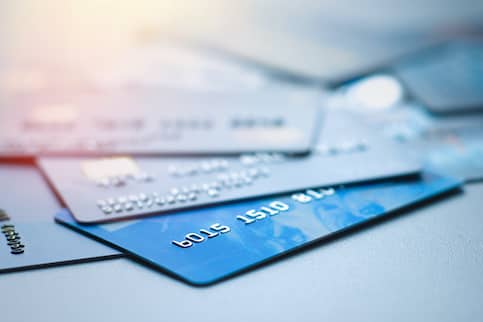Can You Use A Personal Loan To Buy Land?

There are many uses for a personal loan – including purchasing land. How you go about using a personal loan to buy land and whether it’s the right option for you may require you to get more familiar with this type of loan and the benefits and drawbacks of using it in this way.
The Ins And Outs Of Buying Land With A Personal Loan
A personal loan is a type of installment loan. Unlike traditional mortgages and land loans, a personal loan is not secured to the land purchase. Instead, a personal loan is usually an unsecured option that offers the borrower free reign on how to spend the loan funds.
Personal loan lenders will look at your financial situation before granting you a loan. Typically, lenders will look for borrowers who have a good credit score, low debt-to-income (DTI) ratio and steady income.
Keep in mind that a better credit score or lower DTI may result in better terms, like a lower interest rate. Regardless of your financial situation, take the time to shop around for the lender offering the best rates and terms for your situation.
If you decide to get a personal loan, you might get approved for a set amount to be repaid in regular installments over a loan term. After approval, you can use the loan funds to purchase land or fund almost any other living expense.
See What You Qualify For
Home Purchase
Home Refinance
Tap Into Equity
Benefits Of Using A Personal Loan To Buy Land
If you want to buy land, using a personal loan can come with many benefits. The top advantages include the following:
- Most personal loans don’t require collateral: Most personal loans are unsecured, which means you don’t have to put any assets at risk to take out the loan. Note that there will still be repercussions should you default on the loan.
- Personal loans may have lower fees: A more traditional real estate loan may come with extra costs like origination fees, prepayment penalties and underwriting fees. In most cases, personal loans don’t require all of these same fees.
- Quicker access to funds: Borrowers can receive their funds faster than through some other means. In some cases, you can get your hands on the funds in just a few business days.
- Shorter terms: Unlike a traditional mortgage that might come with a term length of decades, personal loans often have terms of 12 to 60 months. This can help you get out of debt faster. Keep in mind, the payment will be larger since you’re paying the loan off in a shorter amount of time.
Find A Mortgage Today and Lock In Your Rate!
Get matched with a lender that will work for your financial situation.
Drawbacks Of Using A Personal Loan To Buy Land
Of course, using a personal loan to buy land also comes with disadvantages. Here’s what to keep in mind:
- Higher interest rates: Many personal loans come with higher interest rates than secured financing options. Since the loan is unsecured, many lenders compensate for this fact with higher interest rates.
- Limited funds: Personal loans are usually no larger than $50,000. If you’re looking to buy an extensive amount of land, this might not be the right fit.
- Tougher credit score requirements: The unsecured nature of personal loans often leads to more stringent credit score requirements.
- Shorter loan terms: If you want lower monthly payments, a longer loan term might be a better fit. Personal loans tend to have loan terms of 12 to 60 months.
Other Funding Options For Purchasing Land
A personal loan isn’t the only funding solution for purchasing land. Below is a closer look at some alternative funding solutions.
Land Loans
A land loan is a type of secured loan that uses the plot of land as collateral on the loan. In general, borrowers will need a higher credit score to get approved for a land loan.
When using this type of loan, you’ll likely need to provide extensive information about the land to the lender. Many lenders will want to know your plans for the plot, zoning, property lines and access to utilities.
Land loans come in several varieties, including raw land loans, unimproved land loans and improved land loans. Typically, raw land loans come with higher interest rates than improved land loans.
If you’re looking for a large loan amount, a land loan might be a better fit than a personal loan.
Construction Loans
In many cases, land loan lenders expect their borrowers to convert land loans into construction loans. Construction loans are designed to cover the construction costs of a building. The funds from a construction loan are often used to pay off the land loan.
After the home is complete, the borrower will apply for a traditional mortgage on the house. Since the end goal of a construction loan is a traditional mortgage on a new home, lenders sometimes see less risk.
USDA Loans
The U.S. Department of Agriculture (USDA) offers a suite of loan opportunities for prospective homebuyers in designated rural areas. Through Section 523 and Section 524 short-term loan options, you could use the funds to purchase a plot of land.
Like other USDA loans, you can expect to find relatively low interest rates through these loan options. If you choose a Section 523 loan, you’ll be expected to provide labor for the planned construction project. But providing labor isn’t a requirement for Section 524 loans.
Home Equity Loans
If you have built significant equity in your current home, you could tap into that value to purchase a new plot of land. Like a personal loan, you can use the funds provided through a home equity loan for almost anything, including a land purchase.
Typically, home equity loans come with lower interest rates than personal loans. But home equity loans are secured by your home. If you default on your home equity loan, the lender could seize your home.
Before taking out a home equity loan, take a hard look at the numbers. You don’t want to use this financing option if you might struggle to repay the loan.
HELOCs
A HELOC is a secured line of credit tied to the value of your home equity. If you have a substantial amount of home equity, you could tap into a HELOC to finance your land purchase.
HELOCs come with a credit limit. If you’re approved for a credit limit high enough to cover the land purchase, then you can withdraw the funds you need. Like a home equity loan, HELOCs come with the risk of losing your home if you don’t keep up with your payments.
Seller Financing
Seller financing is a unique arrangement that involves the current owner of the land lending directly to the new buyer. Seller financing isn’t always available. If the seller is willing to provide this option, expect a relatively short repayment timeline of fewer than 10 years.
As the buyer, you’ll negotiate the terms of the loan directly with the seller. While everything about the transaction is up for negotiation, most sellers require a significant down payment before moving forward.
When pursuing this option, it might be a good idea to get a real estate attorney onboard. As you move through the negotiations, it’s helpful to have a real estate professional to work on your behalf. After all, you don’t want to get stuck with an unfavorable contract.
FAQs For Buying Land With A Personal Loan
You have questions about buying land with a personal loan. We have answers.
What credit rating do I need to buy land?
Every personal loan lender has their own credit score requirements. But in general, you should plan to have a credit score of around 650 to qualify. remember, the lower your credit score, the higher your interest rates may be.
What are common rates for personal loans?
The interest rates tied to personal loans change over time. According to the Federal Reserve, the average interest rate for a 24-month personal loan was 11.21% in November 2022.
Can you use a personal loan to buy a piece of land?
Yes, it’s possible to use a personal loan to buy a piece of land. Most personal loan lenders allow you to use the funds for anything, including a land purchase. But a personal loan isn’t always the best financing option for this type of purchase.
Can you buy land on a credit card?
While it technically might be possible to buy land on a credit card, it’s not likely. The seller must be willing to accept a credit card transaction and you must have a credit limit high enough to cover the cost of the land. Typically, buying land on a credit card isn’t feasible due to the expensive nature of this purchase.
The Bottom Line
A personal loan offers one way to purchase the plot of your dreams. While a personal loan isn’t the only option, these unsecured loans are a useful opportunity for many. We recommend speaking to a financial advisor who can provide more information based on your situation and financial goals.
Find A Mortgage Today and Lock In Your Rate!
Get matched with a lender that will work for your financial situation.











